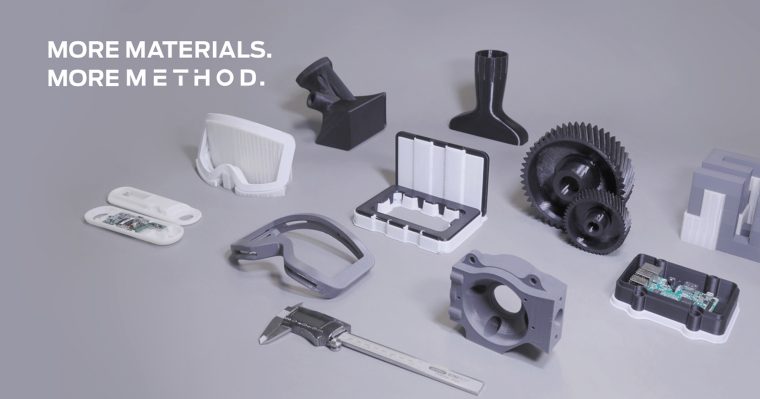MakerBot Nylon enables advanced functional prototyping and end-use part production;
2019 marks an impressive time for MakerBot materials, as the company concludes the year with eight materials for METHOD
MakerBot, a global leader in 3D printing and subsidiary of Stratasys (Nasdaq: SSYS), announces the addition of Nylon to its growing portfolio of engineering-grade materials, bringing the total to eight for the METHOD platform, as the company continues to drive accessibility of industrial additive manufacturing. Optimized for high abrasion resistance, Nylon is widely used for functional prototyping and end-use applications within the automotive, industrial products, and consumer products industries.
Due to its high flexural, tensile, and impact strength, Nylon has strong mechanical properties and is ideal for applications that require repetitive motions or applied force, such as manufacturing tools and fixtures, articulated parts, snap fits, living hinges, gears, and air intakes. These parts often experience increased heat due to friction and may require flexibility due to interactions with other parts. Nylon also has high thermal properties and is heat resistant up to 180°C.
“The availability of eight materials for METHOD in less than a year underscores our commitment to customers. As we continue to rapidly expand our materials offerings, customers can choose from a variety of materials that offer different mechanical and thermal properties suited to their applications,” said Nadav Goshen, CEO, MakerBot. “Nylon’s unique combination of mechanical properties, accompanied with high heat resistance, opens up a new set of applications for the METHOD platform, such as gears, living hinges, and repetitive motion manufacturing fixtures. Engineers can also increase efficiencies in the workplace by using Nylon for a range of end-use applications.”
Nylon is sensitive to moisture and can easily absorb water in the air. This tendency can cause filament stored in even moderate humidity to produce parts with warping and deformation. METHOD’s sealed material bays can keep Nylon free of damaging humidity. A new spool drying feature will also allow customers to use the METHOD X heated chamber to dry out Nylon spools that have been affected by moisture uptake.
A suite of built-in sensors also helps to ensure materials are stored in their optimal environments—a feature previously only available in traditional industrial 3D printers. In addition, printing Nylon with MakerBot’s water-soluble PVA support material enables users to print complex geometries.
Nylon is expected to begin shipping in early 2020 and will be available in black.
www.makerbot.com

 Deutsch (Germany)
Deutsch (Germany)  Polski (PL)
Polski (PL) 










